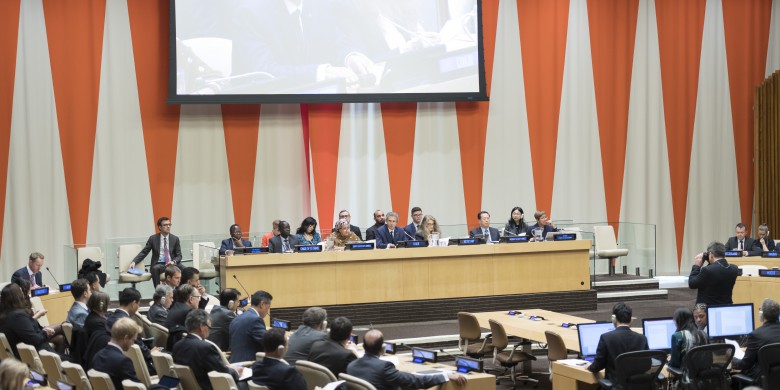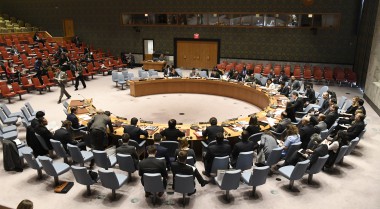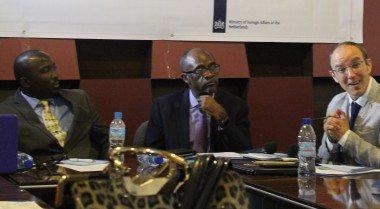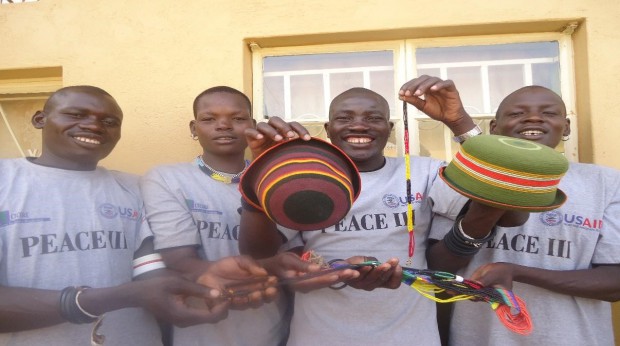
UN Update: The Peacebuilding Commission’s Annual Session
On 12 November, GPPAC attended the Peacebuilding Commission’s full-day Annual Session, focused this year on “Peacebuilding and Sustaining Peace in the Sahel.” The UN has been formally involved in the Sahel region since 2013, with the launch of the UN Integrated Strategy for the Sahel (UNISS). The plan focuses on 10 countries[1], which overlap GPPAC’s West Africa and Eastern/Central Africa regions, and six key areas, one of which being prevention and resolving conflicts. In May 2018, the UN also released the UN Support Plan for the Sahel, which serves as a tool to improve implementation of the UNISS framework. The Annual Session served as a space for reflection on implementation of UNISS and steps moving forward. Three civil society organizations, including GPPAC, the Women’s International League for Peace and Freedom (WILPF), and the Quaker United Nations Office (QUNO), were allowed to participate from the floor. The president of ECOSOC, H.E. Inga Rhonda King, stressed the “impetuous relationship” between the PBC and ECOSOC. As the first ECOSOC president to ever address the PBC at an Annual Session, her address symbolized the nexus between sustainable development and peace and security.

The meeting included two working sessions, one on strategic partnerships with key stakeholders and the second on empowering youth and women as agents of change. The resounding message of both sessions circulated around the lack of coordination between action plans, both within and outside of the UN. Currently, there are 19 active strategic plans for the Sahel. Consequently, coordination is difficult, duplication is frequent, and mobilizing enough donors is challenging, especially for local peacebuilders. However, representatives from Member States in the region, as well as other actors, view the Sahel as a place of opportunity. With 60.3% of the population under the age of 25 and vast natural resources, the region has strong potential to overcome its current challenges.
Regional organizations also have a key role in the Sahel and are partnering to increase effectiveness of peacebuilding and sustaining peace efforts. ECOWAS, AU, UNOWAS and the G5 Sahel (Burkina Faso, Chad, Mali, Mauritania, and Niger) are working together to increase stability and development. The President for the Network for Peace and Security for Women, a civil society representative for the Sahel, emphasized the power of regional coordination and even called for regional strategic plan for women to ensure women’s needs are heard and projects are adequately funded.
Coordination, inclusivity, and local ownership are key to success in the Sahel, and action must be taken at the regional level. Although some countries have specific problems to tackle, most issues (such as extremism and climate change) stretch across borders. Border communities need protection and support from regional institutions. Forums for information-sharing throughout the region could be extremely vital for capacity-building of national institutions. As a regionally-centered network, GPPAC encourages problem-solving and collaboration at the regional level. GPPAC can utilize its networks both within and around the Sahel region to increase capacity-building for women and youth, connect members to trainings and best practices, and advocate on the regional and global level for more funding of grassroots efforts.
If you are interested in watching a replay of the session, follow this link to UN Web TV.
[1] The Gambia, Senegal, Guinea, Mauritania, Mali, Burkina Faso, Niger, Nigeria, Cameroon, and Chad


